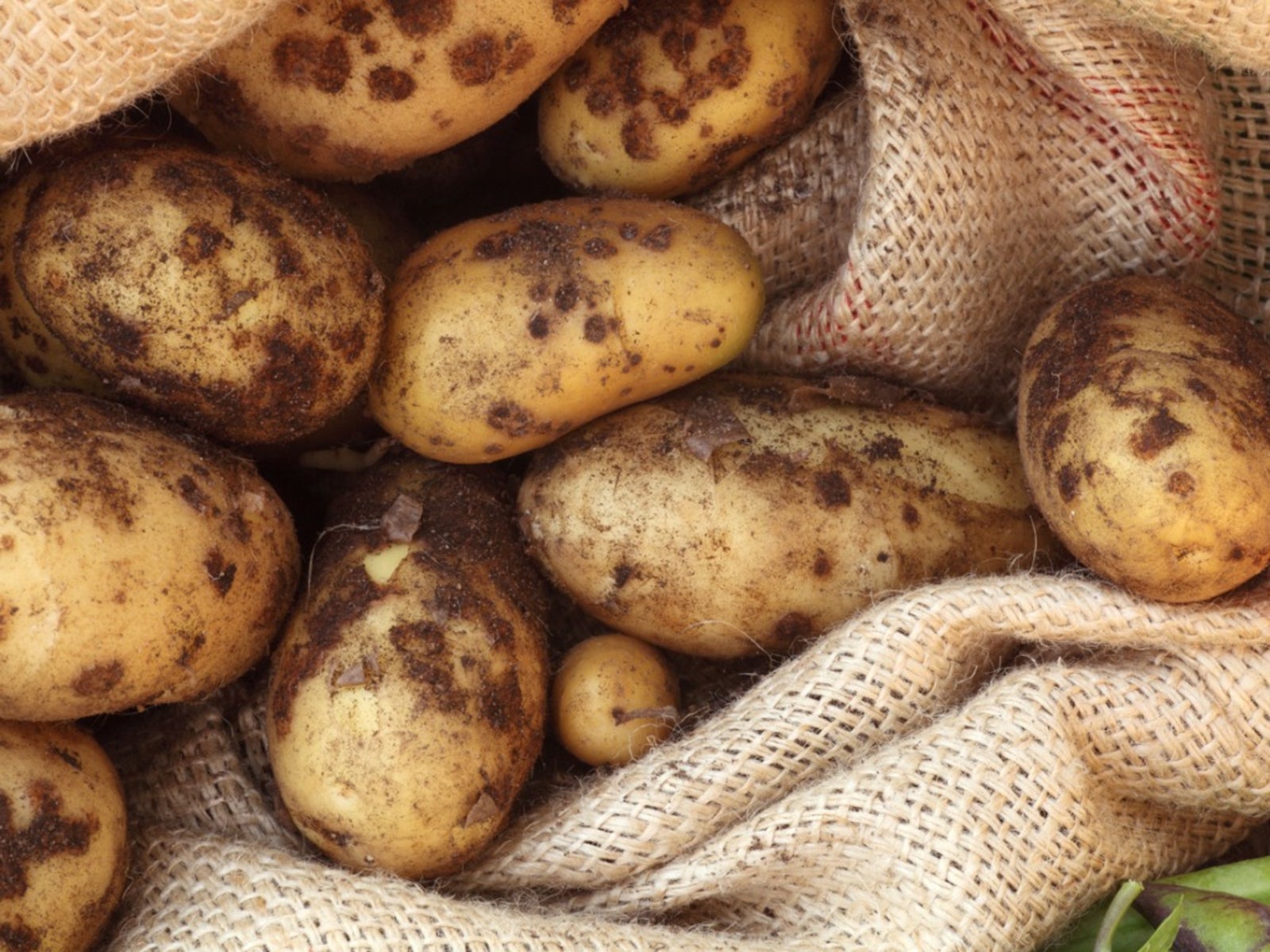Scab On Vegetables - How To Treat Scab Disease In The Vegetable Garden


Scab can affect a wide variety of fruits, tubers, and vegetables. What is scab disease? This is a fungal disease that attacks the skin of edibles. Scab on vegetables and fruits causes malformed and damaged crops. The crop may become infected by bacteria or other organisms. Learn how to treat scab disease to prevent further scarring and damage. Management of your garden site can prevent future crops from becoming affected by the disease.
What is Scab Disease?
Scab is usually caused by Cladosporium cucumerinum. These fungal spores overwinter in soil and plant debris and become most active and reproductive in spring when temperatures begin to warm and there is plenty of moisture. Scab on vegetables may also be introduced to your crops from infected starts, contaminated machinery, or even from wind-blown spores. Cucurbits, which include cucumbers, gourds, squash, and melons are particularly susceptible. It is also common on potatoes and some other tubers.
Scab of Cucurbits
Scab of cucurbits is the most commonly seen and affects melons, summer squash, cucumbers, pumpkins, and gourds. Only most strains of watermelon, however, are resistant. Symptoms first appear on the leaves and present as water spots and lesions. They start out light green and then turn white and finally gray surrounded by a yellow halo. The center eventually tears away, leaving holes in affected foliage. Unchecked, the disease moves to the fruit and produces small oozing pits in the skin which enlarge to deep sunken cavities.
Potato Scab Disease
Tubers such as potatoes are also often infected. Potato scab disease produces corky spots on the skin, which can go quite deep and affect the upper layer of flesh. Potato scab is caused by a different organism, a bacterium. It lives in soil and can also remain in the earth over winter.
How to Treat Scab Disease
Are vegetables affected by scab disease safe to eat? They aren't dangerous, but the texture and appearance is greatly affected. You can cut out the lesions and use the clean flesh of the edible. When it comes to treating scab on vegetables, some scab disease responds to fungicide when applied early, just as the plant begins to bloom. However, prevention is easier. Don't overhead water and avoid working among the plants when they are wet. Remove all old plant material and rotate crops every three years if possible. Use disease resistant plants and seeds and don't start tubers from affected roots. If your soil is alkaline, acidify the soil with the appropriate amount of sulfur as spores dislike acidic soils. Always use clean tilling and pruning tools to prevent the spread of the disease.
Sign up for the Gardening Know How newsletter today and receive a free copy of our e-book "How to Grow Delicious Tomatoes".

Bonnie Grant is a professional landscaper with a Certification in Urban Gardening. She has been gardening and writing for 15 years. A former professional chef, she has a passion for edible landscaping.